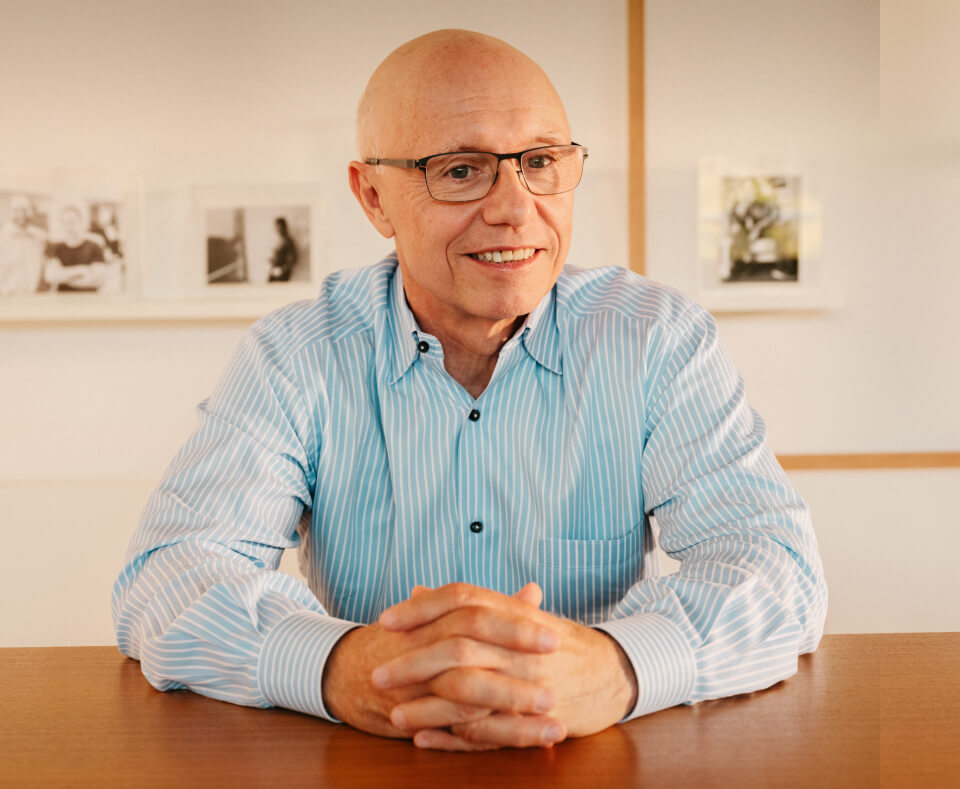Seven Questions with Doug Leone
Classic advice for founders from the Sequoia community.

As the former Global Managing Partner of Sequoia, Doug Leone has partnered with companies including RingCentral and ServiceNow while leading the firm’s expansion into China and India. He began his career in tech at Sun Microsystems, Hewlett-Packard, and Prime Computer, before joining Sequoia in 1988.
What is something you’ve learned that you lean on daily?
To be brutally honest with myself. Everything starts from within: inner peace, a drive to succeed, order. But it requires the courage to admit what you are and what you aren’t. I know my own limitations, what I can and can’t do. If you admit your own weaknesses, you can surround yourself with people who are better than you, and the greater good is stronger.
I think my goal to be brutally honest comes from my childhood. I was born in Italy and coddled as an only child. My family moved to the U.S. in 1968—it was an incredible shock. I had to learn the language, the customs, everything. So, you take the sweetest of children and put him in an environment where he gets the shit beat out of him all the time, belittled at every level. The sweet little boy of 10 became abused socially by 15. That created someone with an inner heart but a very sharp outer edge. I had a powerful drive to win, but knew what my limitations were.
What one piece of advice would you give someone starting a company?
Do it for the right reasons: you want to make an impact, you want to change the world, you want to see your product used by millions of people. Not because of money, or to stroke your ego. You start a company because you see an opening, and you just can’t fall asleep at night until you go after it. Founders have something to prove and they’re persistent in going after it. No one is going to hand success to you. I remind my kids every day that the world is not fair; I don’t want them to think the world owes them anything. In the end, you’ve got to perform, no matter how great your idea is.
What small change has made a big difference in your life?
I’ve learned that listening is key. I’m still a terrible listener, but better than I was, and that change has come down to one word: maturity. Success didn’t make me lazy, but it brought me peace. I’m more at peace with the world and myself.
Also, staying in shape is critical. I wake up at 4:30 a.m. to work out. It’s a commitment to have your mind and body as healthy as possible so you are ready to attack the problems of the day.
What don’t you know that you wish you knew?
I wish I had a more creative gene. I’m a linear thinker. The moment I ask a question, my brain automatically grows into tree structure. I can see all the branches and roots, but there could be something out of left field that I don’t see.
This is why I often force myself to do things that I’m not inherently good at, to exercise different parts of my brain. I will sit in front of the piano and mess around with chords. I love spending time with people who are different from me, just listening to what they come up with. It helps make me more open-minded.
What books are on your nightstand right now?
I just finished Red Notice, by Bill Browder, a book about Russia. Browder’s father was the head of the Communist Party of America. Once in awhile I’ll read these spy fictions. Then for the next month, the whole world looks different because I’ve been trained to think like a spy. Another big book for me was Antifragile, by Nassim Nicholas Taleb. That book put on paper a lot of things that I had a sense about but couldn’t really articulate. It was incredibly educational.
When did you realize you were wrong about something?
All the time. I break the record for being wrong. But it’s OK. Be wrong and make mistakes, but learn. I’ll always change my mind based on new data. Never emotions, just data. It’s not unusual for me to give my opinion at a partners’ meeting, but then hear a counter-argument from a young associate and say: “Wait a second. I like that argument better than I like my argument.” I never feel like I need to prove I am the smartest guy in the room. You can be a genius and be right a lot, or allow yourself to be wrong but surround yourself with smart people who, as a team, will kick the butt of the genius. Teams always win. I’m sure about that.
What unit of time matters the most and why?
I would say 12 months. I don’t do my best every second—who does?—but I try to bring my best every day. Even then, you might have a day or a week where you don’t bring it, so I try to look at the bigger picture. It’s not every second or every hour that matters. It needs to be more strategic than that. With a year, you’ve got to have a general direction where you’re going. It has an element of strategy, an aim and a goal. Then it’s execution. It gives you enough time to be right and to be wrong.